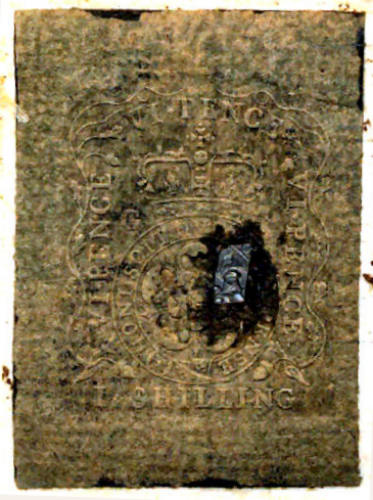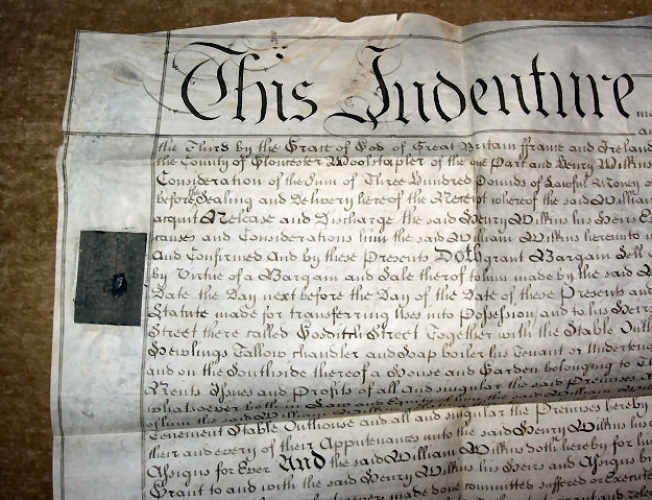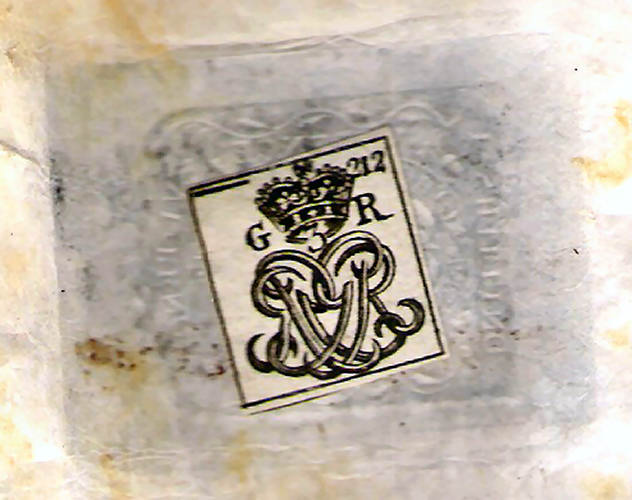


![]() In another eight days it will have been 248 years (that's about 90,580 days, in case you're curious) since the Stamp Act was passed by the British Parliament on 22 March 1765. But let's not celebrate on the 22nd. ~ Let's hold the celebration on the 18th (the date in 1766 on which the Act was repealed ~ Whew-hoo!!!). (And in case you're curious, that will amount to roughly 90,211 days)
In another eight days it will have been 248 years (that's about 90,580 days, in case you're curious) since the Stamp Act was passed by the British Parliament on 22 March 1765. But let's not celebrate on the 22nd. ~ Let's hold the celebration on the 18th (the date in 1766 on which the Act was repealed ~ Whew-hoo!!!). (And in case you're curious, that will amount to roughly 90,211 days)
![]() The Stamp Act {or more precisely: AN ACT for granting and applying certain stamp duties, and other duties, in the British colonies and plantations in America, towards further defraying the expenses of defending, protecting, and securing the same; and for amending such parts of the several acts of parliament relating to the trade and revenues of the said colonies and plantations, as direct the manner of determining and recovering the penalties and forfeitures therein mentioned.} was passed as a Statute at Large ostensibly for the purpose of raising at least £60,000 to help offset the £350,000 required to maintain the British Army in the American Colonies.
The Stamp Act {or more precisely: AN ACT for granting and applying certain stamp duties, and other duties, in the British colonies and plantations in America, towards further defraying the expenses of defending, protecting, and securing the same; and for amending such parts of the several acts of parliament relating to the trade and revenues of the said colonies and plantations, as direct the manner of determining and recovering the penalties and forfeitures therein mentioned.} was passed as a Statute at Large ostensibly for the purpose of raising at least £60,000 to help offset the £350,000 required to maintain the British Army in the American Colonies.
![]() The Stamp Act required that stamps be purchased for (and affixed to) printed documents, including legal documents, newspapers and so forth, along with many other paper items, such as playing cards. The photo below shows one of the stamps attached to a deed. The costs for each stamp varied from three pence (that's cents for my American readers) to multiple pounds (that's kind of like dollars for my American readers). To have a license printed for retailing of "spiritous liquor", a duty (i.e. a tax or payment) of three pounds was to be charged for the stamp that was to be attached to it. The duty for the stamp that was attached to the deed shown below would have cost one shilling and six pence.
The Stamp Act required that stamps be purchased for (and affixed to) printed documents, including legal documents, newspapers and so forth, along with many other paper items, such as playing cards. The photo below shows one of the stamps attached to a deed. The costs for each stamp varied from three pence (that's cents for my American readers) to multiple pounds (that's kind of like dollars for my American readers). To have a license printed for retailing of "spiritous liquor", a duty (i.e. a tax or payment) of three pounds was to be charged for the stamp that was to be attached to it. The duty for the stamp that was attached to the deed shown below would have cost one shilling and six pence.

![]() The idea of the Act was not really so wrong ~ it was intended to help pay for the troops that had fought to win control of the continent from the French during the French and Indian War. Why should the people residing in Great Britain pay for the upkeep of the army in the American Colonies? ~ But the American colonists took offense to the Act having been passed, like so many others, by the British Parliament without allowing any representatives from the colonies participate in that Parliament. ~ Hence the saying: Taxation Without Representation!
The idea of the Act was not really so wrong ~ it was intended to help pay for the troops that had fought to win control of the continent from the French during the French and Indian War. Why should the people residing in Great Britain pay for the upkeep of the army in the American Colonies? ~ But the American colonists took offense to the Act having been passed, like so many others, by the British Parliament without allowing any representatives from the colonies participate in that Parliament. ~ Hence the saying: Taxation Without Representation!
![]() The photo at the top of this post shows the stamp close up. The grey, rectangular thing on the center-right is not an example of damage to the stamp. It is actually part of the stamp affixing process. The grey thing is a small piece of tin foil. The stamp would be pasted to the document, and then the small piece of tin foil would be pushed through the stamp and the document itself.
The photo at the top of this post shows the stamp close up. The grey, rectangular thing on the center-right is not an example of damage to the stamp. It is actually part of the stamp affixing process. The grey thing is a small piece of tin foil. The stamp would be pasted to the document, and then the small piece of tin foil would be pushed through the stamp and the document itself.
![]() It would be left exposed on the front side, and then on the back, the piece of tin foil would be covered over by a piece of paper printed with the royal seal of the king. In this case, as shown in the photo below, the seal bears the letters G and R (for George - Rex, or King).
It would be left exposed on the front side, and then on the back, the piece of tin foil would be covered over by a piece of paper printed with the royal seal of the king. In this case, as shown in the photo below, the seal bears the letters G and R (for George - Rex, or King).

